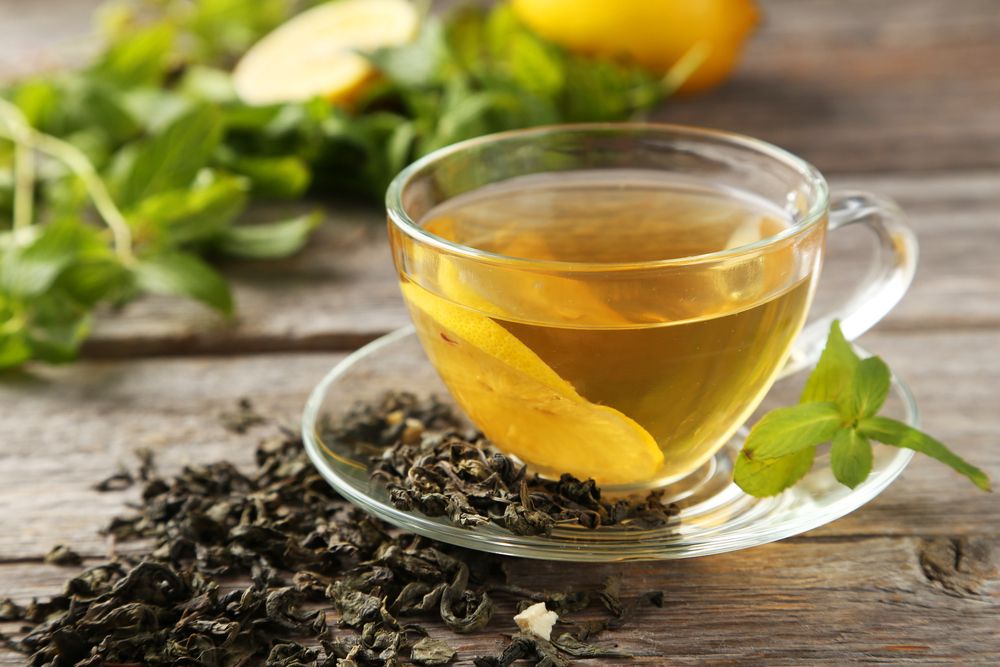
Green tea is widely regarded as one of the healthiest drinks in the world. Rich in antioxidants, vitamins, and metabolism-boosting compounds, this ancient beverage has been celebrated for centuries. From aiding in weight management to helping lower cholesterol, green tea is often praised for its numerous health benefits.
While many of these benefits are well-supported, some claims lack strong scientific backing. Green tea can certainly be a valuable addition to your diet, but to fully enjoy its advantages, it's essential to consume it as part of a balanced diet and healthy lifestyle.
You could lose weight.

If you're working toward weight loss, drinking green tea can give your metabolism a helpful boost and aid in reducing belly fat. Green tea contains epigallocatechin gallate (EGCG), a plant compound known to enhance metabolism and promote more efficient fat burning.
To maximize the weight loss benefits of green tea, choose the caffeinated variety, maintain regular exercise, and follow a reduced-calorie diet for the best results.
You could live a longer life.
Drinking green tea may contribute to increased longevity. Since it contains compounds that help protect against chronic diseases, regular consumption has been linked to a longer lifespan. A large study in Japan involving over 300,000 people found that daily green tea drinkers had a reduced risk of death from all causes. The greatest benefits were observed in those who drank more than five cups per day, though even one cup per day was associated with longevity benefits.
You may lower your cancer risk.
Although more research is needed, some studies suggest that regular green tea consumption may help lower the risk of certain cancers. Green tea is rich in polyphenols, plant compounds that act as antioxidants, protecting cells from DNA damage caused by free radicals—unstable compounds that can increase cancer risk.
While green tea is not a treatment for cancer, including it as part of a healthy diet may reduce overall cancer risk.
You may lower your cholesterol.
According to the CDC, at least 10% of adults in the U.S. have high cholesterol. Drinking green tea has been associated with lower levels of LDL cholesterol, the "bad" cholesterol that raises the risk of cardiovascular problems. This effect has been observed in multiple studies involving over 3,000 participants.
Green tea’s catechins, powerful antioxidants, help remove cholesterol from the body, supporting heart health and reducing the risk of cardiovascular issues. For healthier cholesterol levels, drinking 1-2 cups of green tea daily (without excess sugar) may be beneficial.
You may improve your blood sugar.

Regularly drinking green tea can help you regulate blood sugar. Studies show that consistent consumption of green tea may lower fasting blood sugar levels and improve glucose metabolism. Green tea aids in glucose absorption by cells, helping to remove sugar from the bloodstream and reducing the risk of blood sugar spikes.
While it’s not a cure for high blood sugar, incorporating green tea into a Mediterranean-style diet may lower the risk of type 2 diabetes. Replacing sugary drinks with green tea, as long as it's not heavily sweetened, is a great first step.
You may look younger.
Green tea’s high antioxidant content can help you maintain a youthful appearance. Its antioxidants, particularly EGCG, protect skin cells from free radicals and UV damage, slowing down the breakdown of collagen, a protein essential for skin elasticity. By preserving collagen levels, green tea helps maintain skin firmness, reducing wrinkles and other signs of aging. Its anti-inflammatory properties can also soothe the skin, promoting a more youthful complexion.
Your memory may improve.
Green tea isn’t just beneficial for your body; it also supports brain health. Studies suggest that drinking green tea can enhance memory, focus, and cognitive function. For the greatest cognitive benefits, caffeinated green tea may be the better option, as the combination of caffeine and other compounds, like L-theanine, boosts attention and focus.
L-theanine, an amino acid found in green tea, enhances mental clarity and helps maintain sustained alertness without the typical energy crash associated with caffeine.
You may have stronger bones.
As you age, the risk of bone loss increases, potentially leading to falls or fractures. Research shows that drinking at least one cup of green tea per day can help protect against bone loss, osteoporosis, and fractures. Green tea is rich in antioxidants that can improve bone density and slow down age-related bone deterioration. Additionally, its anti-inflammatory properties support overall bone health, helping reduce the risk of osteoporosis and promoting stronger bones over time.
You may improve your workouts.

Green tea can give you a natural energy boost during exercise. Thanks to its blend of caffeine and L-theanine, green tea provides a sustainable energy boost for your workouts. While it contains less caffeine than coffee, it’s still enough to improve physical performance and endurance, without the jittery side effects that can come with higher caffeine doses.
This makes green tea a great option for those who are sensitive to high levels of caffeine or energy drinks. The energy it provides is also more steady and sustained, which can lead to more effective workouts over time. For a natural, safe way to feel more energized, try drinking a glass of green tea before your next workout.
You may feel less stressed.
Although stress is unavoidable, drinking green tea can help you feel more relaxed. The L-theanine in green tea has been shown to promote calmness by regulating dopamine and serotonin levels in the brain—hormones that control mood and emotions.
This balance allows your body to manage stress more effectively. Green tea's unique ability to boost both relaxation and alertness makes it an excellent choice for reducing stress without causing drowsiness.

